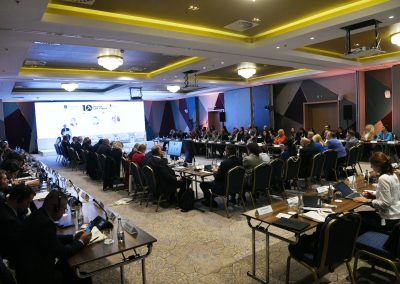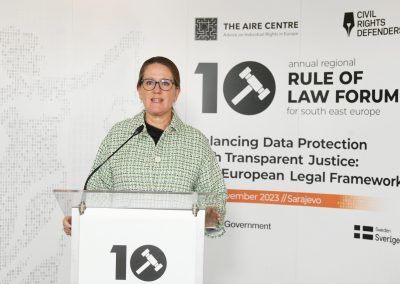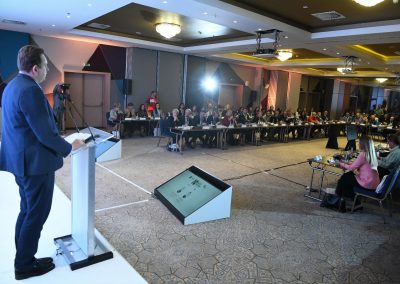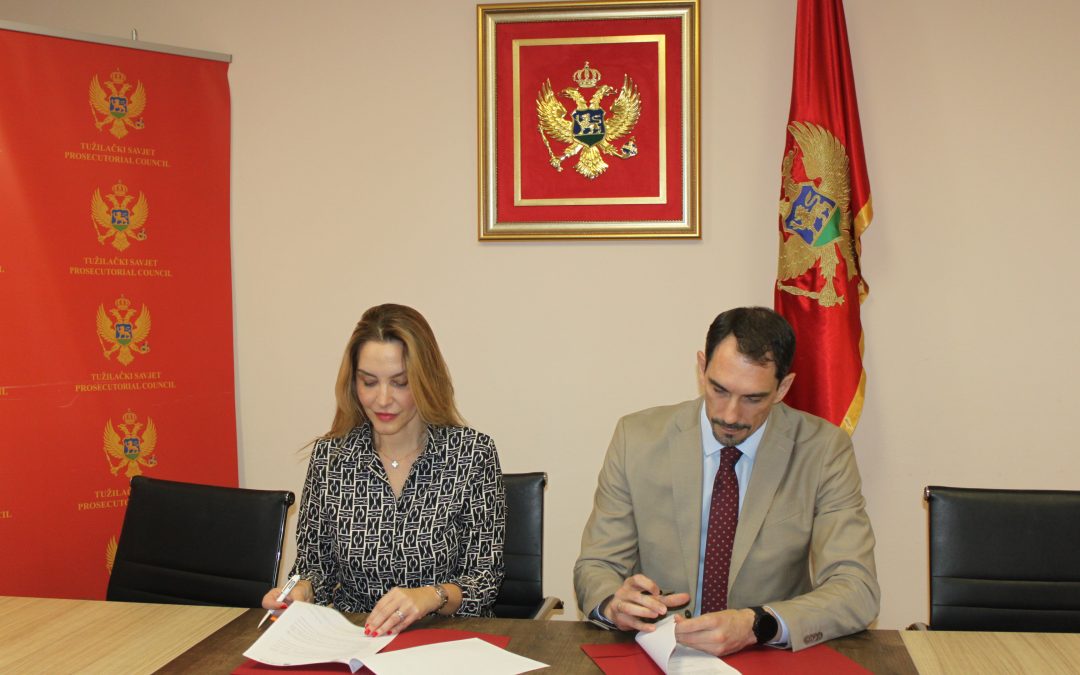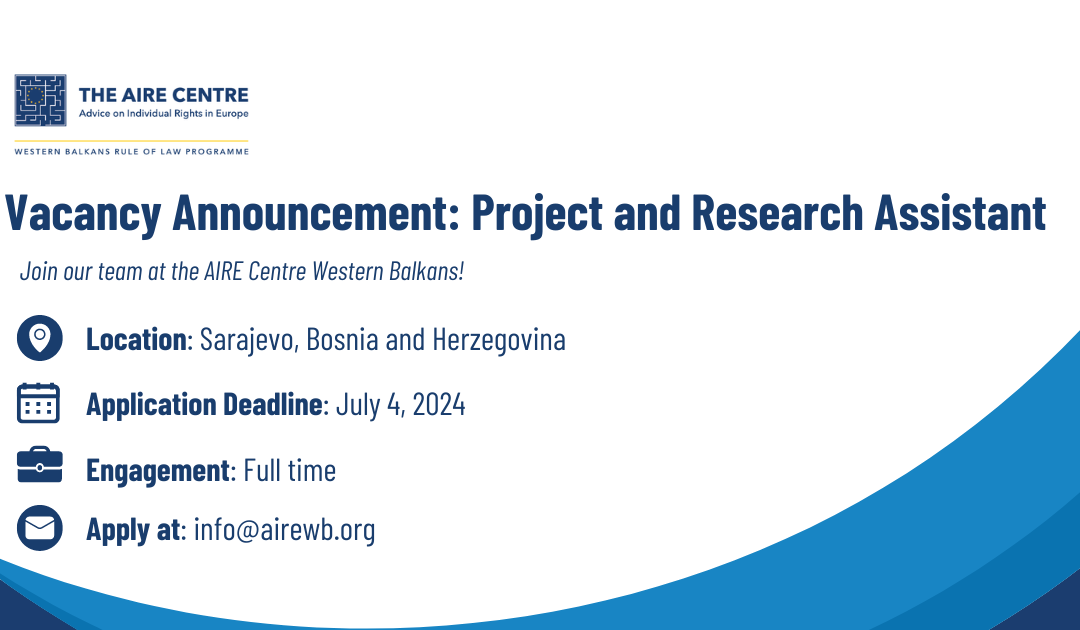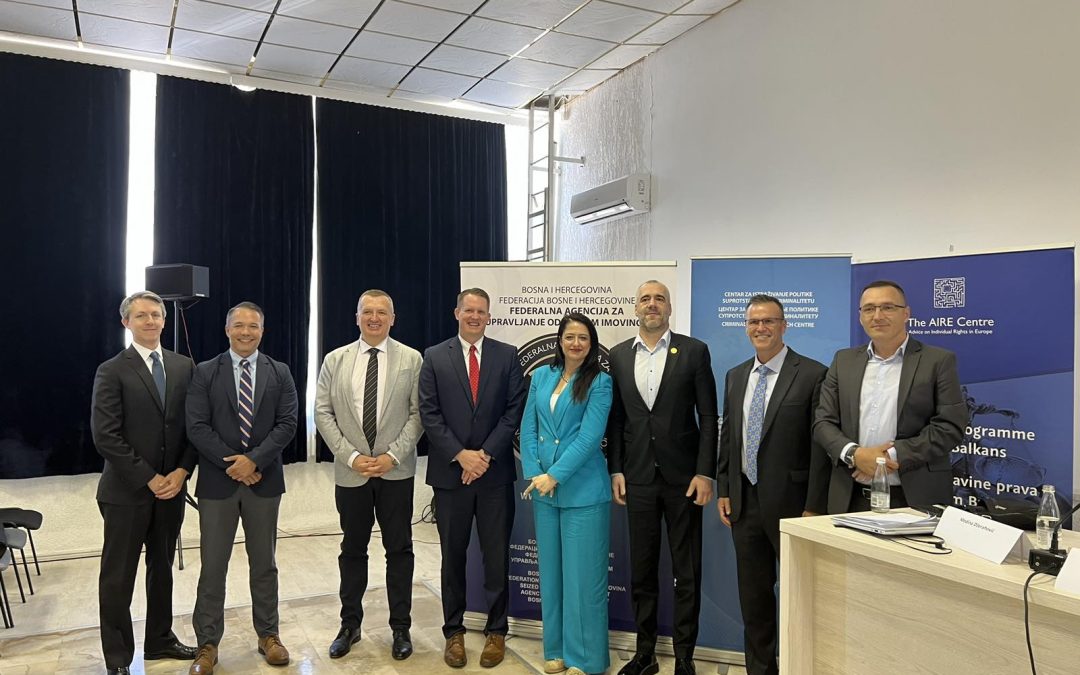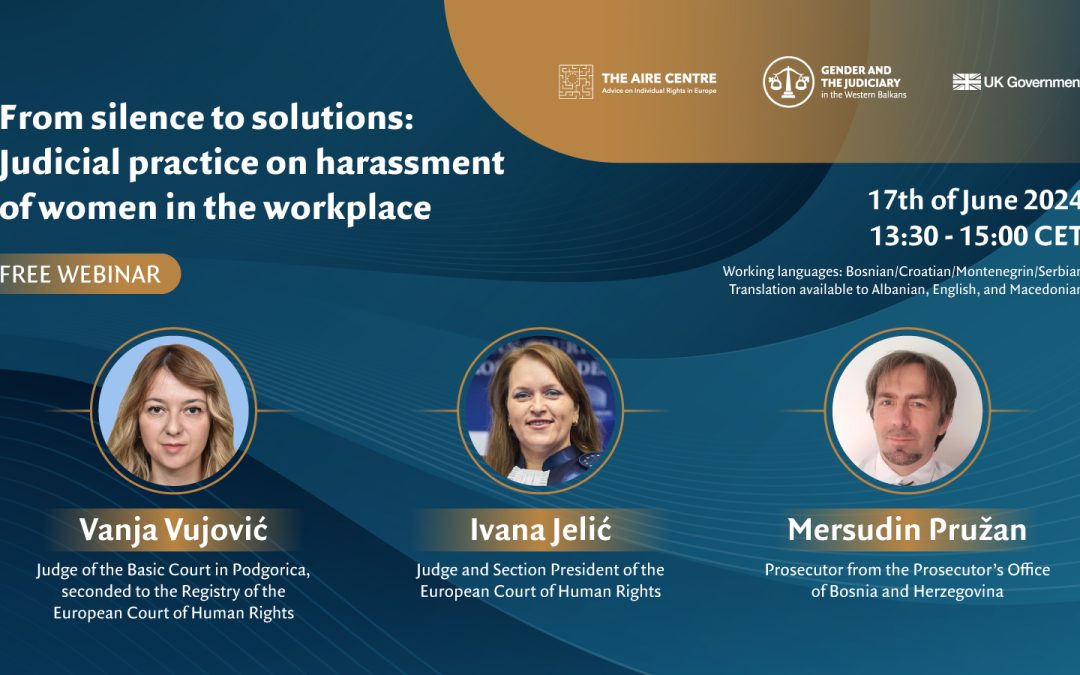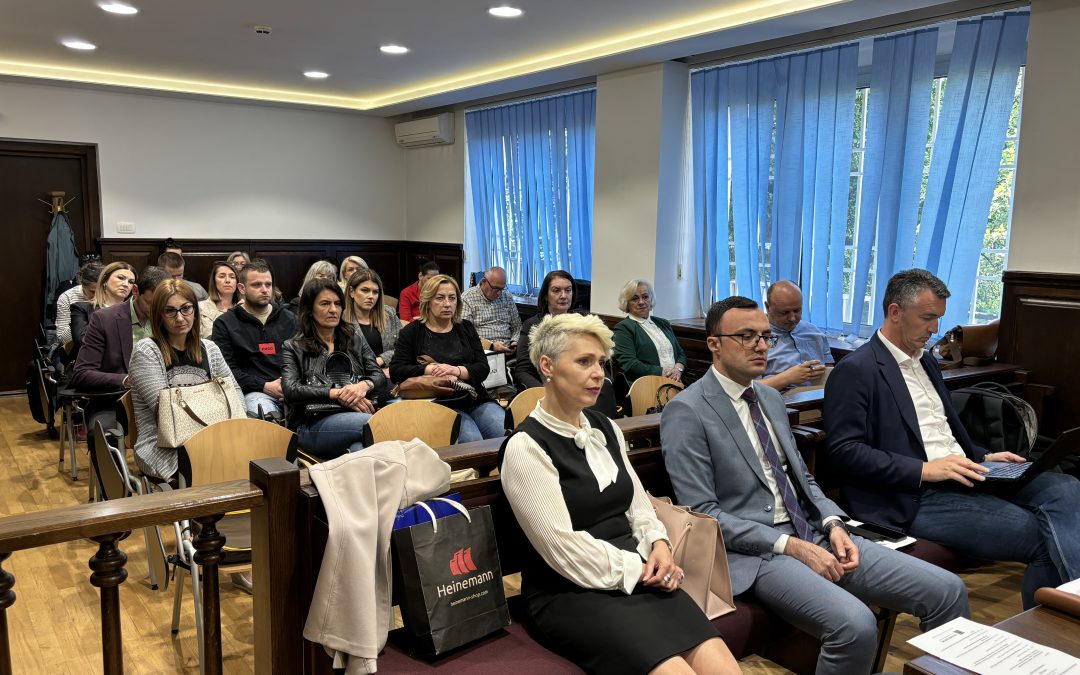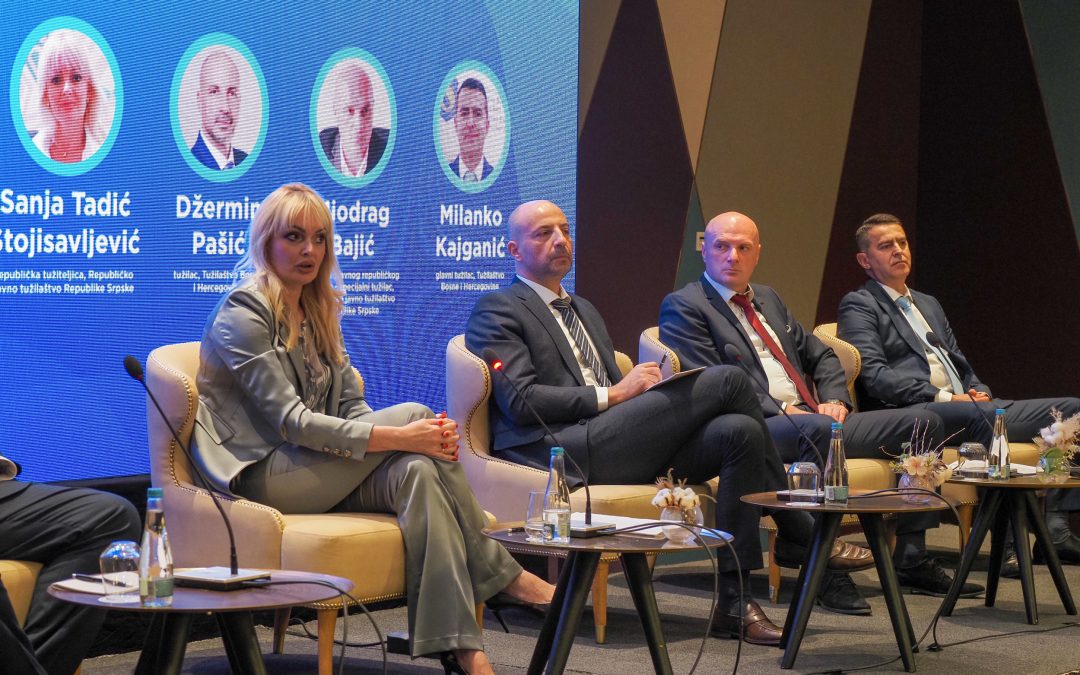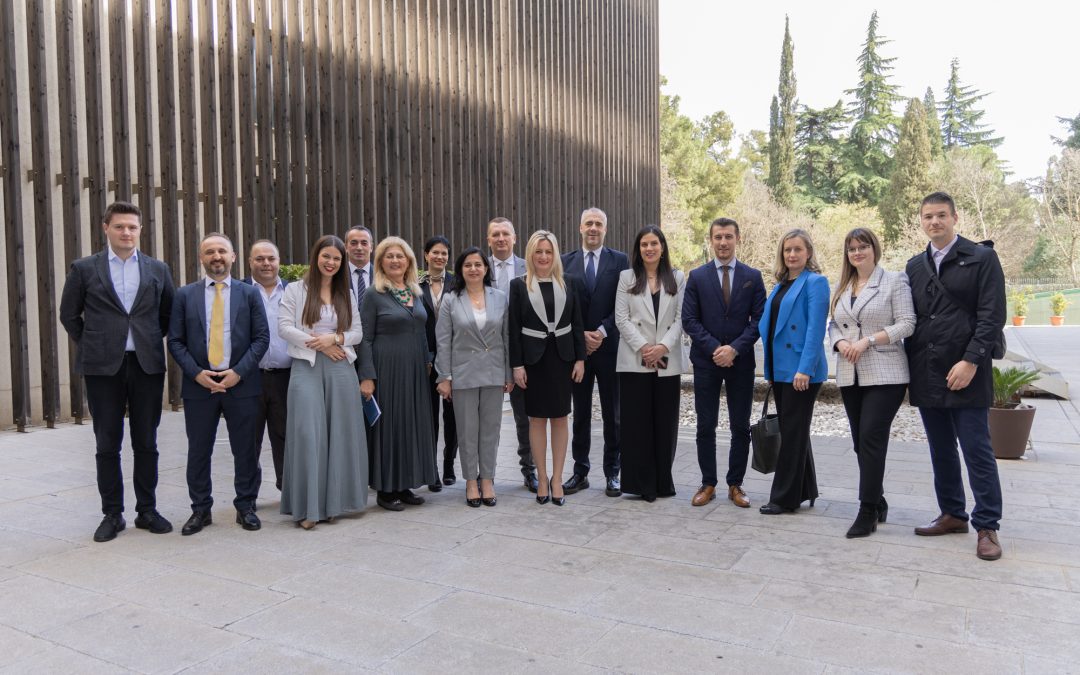With the development of technology, the judiciary has entered a new era of crime investigation and prosecution, and it must keep pace with the new challenges and opportunities. However, individual rights of citizens must not be compromised in that process, it was said at the opening of the Tenth Regional Rule of Law Forum for South East Europe, held today and tomorrow in Sarajevo. This event has brought together over 100 participants, including judges from the European Court of Human Rights (ECHR), along with ECHR Vice-President Marko Bošnjak, as well as presidents of judicial institutions, judges, representatives of civil society, and other legal experts from Albania, Bosnia and Herzegovina, Montenegro, Kosovo, North Macedonia, Serbia, and beyond.
The Tenth Regional Rule of Law Forum for South East Europe is organised by the non-governmental organisations AIRE Centre and Civil Rights Defenders, with the support of the Government of the United Kingdom, the Swedish International Development Cooperation Agency, and the Constitutional Court of Bosnia and Herzegovina. The focus of this year’s Forum is on key challenges and opportunities for balancing data protection with transparent justice, with a focus on the European Convention for the Protection of Human Rights and Fundamental Freedoms (Convention), specifically on the protection of Article 8 (the right to respect for private and family life), taking into account the protective measures envisaged by Article 6 (the right to a fair trial).
These issues have become particularly prominent lately as courts and other State authorities grapple with questions concerning the admissibility of evidence obtained from the interception of electronic communication services like EncroChat, Sky ECC, ANOM, and other similar sources. These issues are relevant in Europe as well, as ever-evolving technology continues to transform how we investigate and prosecute crimes and how we conduct judicial proceedings.
“The development and prevalence of technology in the everyday lives of citizens create new challenges, but also opportunities, for the judiciary. Innovative investigative methods, such as the surveillance and interception of electronic communications, significantly enhance the fight of the judiciary and other state authorities against organised crime. However, such efforts must not compromise the rights of individuals or in any way undermine the fairness and trust in the judicial system“, said Biljana Braithwaite, Director of the Western Balkans Program at the AIRE Center, at the opening of the Forum.
Discussions at the Forum will also centre around the impact of technological development on how courts conduct legal proceedings and communicate about them, pressing questions regarding how best to safeguard the public nature of judicial proceedings and the public communication of judgments, whilst also protecting the right to private life, the presumption of innocence and the right to be forgotten of those involved.
“The balance between data protection and transparency in judicial proceedings is a matter of great importance, deeply rooted in the principles of the rule of law and democracy. It also significantly influences the preservation of citizens’ trust in the judiciary, which is particularly crucial at a time when trust in both democracy and the judicial system in our region is declining”, said Goran Miletić, Director of Civil Rights Defenders for Europe, the Middle East, and North Africa.
Valerija Galić, President of the Constitutional Court of BiH, told in her introductory address that in the developed digital age we live in, data protection and transparent judiciary are becoming increasingly significant aspects of society.
“Establishing a balance between data protection, along with the right to privacy on one hand, and transparent judiciary on the other hand, is crucial for preserving democratic values, citizens’ rights, and the rule of law in general. This Forum will provide a unique opportunity for discussion on this important issue, and this debate is sure to result in quality conclusions“, stated Galić.
Julian Reilly, the British Ambassador to Bosnia and Herzegovina, said that the Forum provides a great platform to address complex issues and find practical legal solutions that will make the lives of Western Balkans citizens safer.
“We live in a time of unparalleled technological advancement, including AI and other digitalisation. As well as presenting opportunities for wider society, new technologies are open to abuse that affect law enforcement and judicial processes. Together we must respond to these new challenges quickly and effectively, including by giving law enforcement and the judiciary the tools and frameworks that they need to protect citizens from serious and organised crime and from corruption. I am sure this week’s events will help build on earlier consensus in this area”, said Reilly.
At the opening of the Forum, Helena Lagerlöf, Swedish Ambassador to Bosnia and Herzegovina, underlined that Sweden is also interested in supporting institutions and civil society organisations in BiH that promote dialogue on these topics, as their efforts are contributing to the EU accession prospects of this country.
“Improving the rule of law in Bosnia and Herzegovina with respect to access to justice and protection of personal data is a crucial step in BiH’s efforts to align its legislation to the EU acquis”, explained Lagerlöf.
This year also marks a decade since the establishment of the Rule of Law Forum for South East Europe. This Forum is one of the most important annual events for representatives of the judiciary, legal professionals, and representatives of non-governmental organisations from the region. The Forum aims to promote the implementation of the European Convention on Human Rights in the region, encourage regional cooperation on the improvement of the rule of law and human rights, and provide assistance to countries in the region in the process of European Union integration. Biljana Braithwaite noted that reports from the European Commission for Albania, Bosnia and Herzegovina, Montenegro, Kosovo, North Macedonia, and Serbia were published this Wednesday, highlighting that Western Balkan countries still have not met the rule of law criteria, which is an essential step on their EU path.
“We must not lose sight of the fact that this issue is crucial for accession to the European Union, as the fundamental values of the EU include the rule of law and respect for human rights. An efficient, independent, professional, and effective judicial system, along with an effective fight against corruption and organised crime, is of utmost importance, as is the respect for fundamental rights not only in law but also in practice“, stated Braithwaite.
“One of the fundamental goals of the regional Rule of Law Forum for South East Europe, since the first event held in 2014, has been to assist countries in the region in meeting the rule of law criteria. Considering the passage of time and the necessity for the countries in the region to make progress on their EU path as soon as possible, it is clear that this mission is more important than ever before“, she added.
More information about the Rule of Law Forum for South East Europe can be found on the website: www.rolplatform.org
